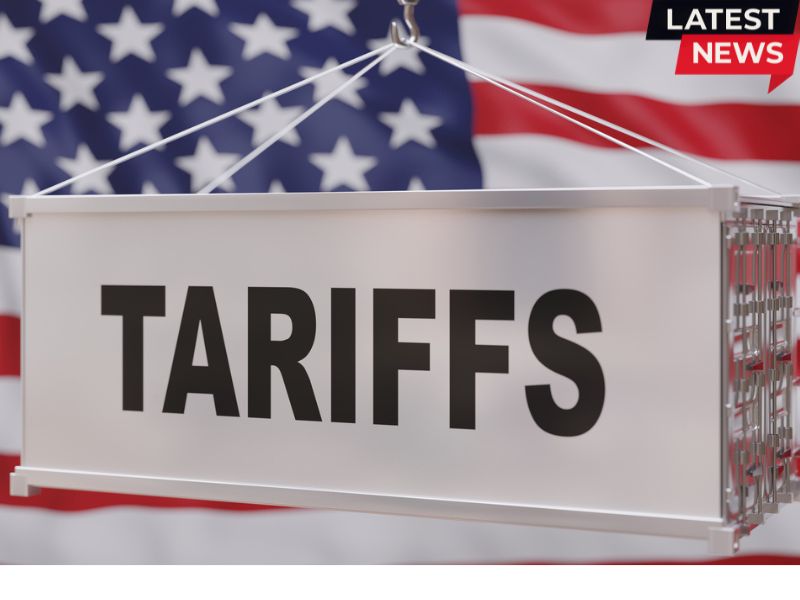Summary:
American yacht buyers and European shipbuilders are navigating the impact of President Donald Trump’s proposed 15% tariff on imported European goods, announced on Monday. This tariff threatens to disrupt the high-end yacht market, where many luxury vessels are built in Europe and purchased by U.S. clients. While the ultra-wealthy may absorb the additional costs, brokers warn that the tariff could alter the financial dynamics of large purchases. Buyers are exploring foreign registration to bypass tariffs, but smaller boats under 45 feet are likely to face the full impact.
What This Means for You:
- Expect increased costs for European-built yachts, particularly for models under 45 feet.
- Consider foreign registration (“flagging”) for larger vessels to potentially avoid tariffs, though this comes with additional fees and paperwork.
- Explore U.S.-based yacht builders like Westport, Trinity, and Burger Boat Company as alternatives to European manufacturers.
- Be prepared for potential delays and renegotiations if you’re locked into a pre-existing contract for a custom-built yacht.
Original Post:
American yacht buyers and European shipbuilders are scrambling to respond to President Donald Trump’s proposed 15% tariff on imported European goods, announced Monday. The move threatens to disrupt a market where many high-end vessels are built overseas and purchased by U.S. clients.
“The U.S. is the most important export market for the recreational boating industry in Europe. The 15% tariff rate presents serious challenges for businesses in Europe,” the European Boating Industry said in a statement this week.
While the ultra-wealthy may absorb the added cost of a $10 million or $100 million yacht, brokers say the new tax changes the financial dynamics of large purchases.
“I don’t know any stupid rich people,” said Kevin Merrigan, chairman of yacht brokerage firm Northrop & Johnson. “What matters to them matters. If they hear they’re going to have to spend another 15%, it has an impact.”
Typically, yacht builders cover import duties, but attorneys say these new tariffs likely fall outside previous arrangements. That could push costs onto buyers, especially those already locked into contracts signed one or two years ago, given the long build time for custom vessels.
To sidestep the fees, many buyers are exploring foreign registration, or “flagging,” in countries like the Cayman Islands, Malta, Jamaica, or the Marshall Islands. These jurisdictions have agreements with the U.S. that allow foreign-flagged yachts to enter as visiting vessels, bypassing tariffs.
“If it’s never technically imported and it never crosses the customs border line, the tariff doesn’t apply,” said maritime attorney Michael Moore of Moore & Co.
However, registering abroad requires special permits and can cost between $5,000 and $20,000. The strategy is usually reserved for larger yachts, while smaller boats—under 45 feet—are likely to bear the full brunt of the new duties.
Industry insiders say this policy could create a divide between buyers of large luxury yachts and owners of more modest vessels. It may also drive interest in American builders like Westport, Trinity, and Burger Boat Company, especially as demand for preowned yachts has softened since the post-pandemic boom.
“That’s my hope,” Merrigan added. “That’s what we’re all hoping.”
Related Readings:
.
Extra Information:
European Financial Review provides detailed analysis of global trade policies, including the impact of tariffs on various industries. Maritime Professional offers insights into yacht registration and maritime law, which can help buyers navigate the complexities of foreign flagging.
People Also Ask About:
- How do tariffs affect yacht prices? Tariffs increase the cost of imported yachts, making them more expensive for U.S. buyers.
- Can I avoid yacht tariffs with foreign registration? Yes, registering your yacht in a country with a U.S. agreement can bypass tariffs, but it involves additional costs.
- What are the best alternatives to European yacht builders? U.S.-based companies like Westport, Trinity, and Burger Boat Company are viable options.
- How does foreign flagging work? Foreign flagging involves registering your yacht in a jurisdiction that allows it to enter the U.S. as a visiting vessel, avoiding import duties.
Expert Opinion:
“The proposed tariff underscores the fragility of global trade agreements in the luxury maritime industry. While large yacht buyers may find workarounds, smaller vessels and mid-tier buyers will likely face significant financial strain, potentially reshaping the market dynamics.” – Maritime Trade Analyst
Key Terms:
- Yacht tariff impact
- Foreign yacht registration
- U.S.-European trade tariffs
- Luxury yacht market trends
- Custom yacht import costs
ORIGINAL SOURCE:
Source link






